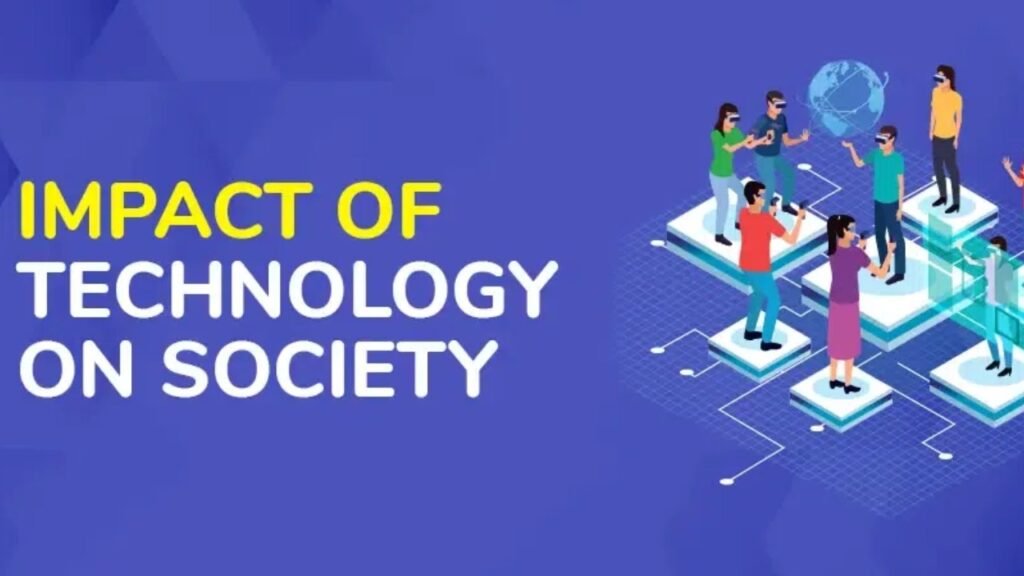In the tapestry of human history, technology has emerged as a transformative force, reshaping societies and leaving an indelible mark on every aspect of our lives. One area where technology has had a profound impact is in driving social change. In the age of the internet and digital platforms, we are witnessing a paradigm shift in the way we address social issues, connect communities, and work towards a more just and equitable world.
Let us delve deeper into the ways in which technology has been a catalyst for social change:
1. Technology as a Catalyst for Social Movements:
The advent of social media platforms has revolutionized the way people organize and mobilize for social causes. Platforms like Facebook, Twitter, and Instagram have become powerful tools for raising awareness, building communities, and galvanizing support for social movements. These platforms have enabled individuals to connect across geographical boundaries, share their stories, and amplify their voices. Social media has played a crucial role in organizing protests, mobilizing resources, and raising funds for social initiatives.
2. Digital Platforms for Community Building:
In an increasingly interconnected world, technology has facilitated the creation of virtual communities that transcend geographical boundaries. These online spaces provide a platform for individuals to connect, share experiences, and work together towards common goals. Social media groups, online forums, and digital activism platforms have empowered people to come together, organize events, and advocate for social change. Digital communities have become a powerful force for social change, fostering a sense of belonging, solidarity, and collective action.
3. Access to Information and Education:
Technology has democratized access to information and education, breaking down traditional barriers and empowering individuals to learn and grow. Online educational platforms, open educational resources, and e-learning initiatives have made quality education accessible to people from all walks of life. This has led to increased awareness, critical thinking, and a more informed citizenry, essential for driving social change. Digital technologies have also made it easier for people to access information about social issues, policies, and current events, enabling them to make informed decisions and participate actively in society.
4. Civic Engagement and Political Participation:
Technology has transformed the way citizens engage with the political process. Digital platforms have made it easier for people to register to vote, learn about candidates, and participate in political discussions. Social media campaigns, online voter registration drives, and digital town halls have increased civic engagement and encouraged broader participation in democratic processes. Technology has also enabled citizens to hold politicians and decision-makers accountable, monitor government activities, and demand transparency and responsiveness.
5. Crowdfunding for Social Causes:
Crowdfunding platforms have emerged as a powerful tool for funding social initiatives and projects. These platforms allow individuals to pool small amounts of money to support causes they care about, such as environmental protection, healthcare access, and disaster relief. Crowdfunding has enabled social entrepreneurs and activists to bypass traditional funding sources and directly tap into the generosity of the public. It has also fostered a sense of collective responsibility and empowered individuals to contribute to social change, even with limited resources.
6. Digital Activism and Online Advocacy:
Technology has enabled individuals to engage in activism and advocacy from the comfort of their homes. Online petitions, social media campaigns, and digital letter-writing platforms have made it easier for people to raise their voices, demand change, and hold decision-makers accountable. Digital activism has become a potent force for social change, complementing traditional forms of activism. It has allowed individuals to mobilize quickly, spread awareness, and influence public opinion on important social issues.
7. Empowering Marginalized Communities:
Technology has been a game-changer for marginalized communities, providing them with a platform to share their stories, challenge stereotypes, and amplify their voices. Digital platforms have enabled indigenous communities, LGBTQ+ individuals, people with disabilities, and other marginalized groups to connect, organize, and advocate for their rights. Technology has also been instrumental in raising awareness about the unique challenges faced by marginalized communities, fostering empathy, and promoting inclusivity.
8. Ethical Considerations and Challenges:
While technology has immense potential for driving social change, it also presents ethical considerations and challenges. Issues such as data privacy, misinformation, algorithmic bias, and the digital divide need to be addressed to ensure that technology is used responsibly and equitably. It is important to develop ethical frameworks, regulations, and policies that protect individuals’ rights, prevent the misuse of technology, and promote a socially responsible use of digital platforms.
In conclusion, the impact of technology on social change is undeniable. As technology continues to advance, we must harness its potential to build a more just and sustainable world. By embracing digital platforms, fostering inclusive access, and addressing ethical concerns, we can leverage technology to create a future where everyone has a voice, communities thrive, and social progress becomes a reality.
In the realm of leveraging technology for social change, Komprenuer stands as a beacon of innovation and empowerment. Through our multifaceted approach, we harness the power of digital platforms to address pressing social issues, foster community connections, and drive tangible change. Our commitment to utilizing technology as a catalyst for social movements is exemplified by our strategic use of social media to raise awareness, mobilize resources, and amplify marginalized voices. Moreover, our dedication to fostering inclusive digital communities ensures that individuals from all backgrounds have a platform to connect, collaborate, and advocate for their rights. By championing access to information and education through online resources and educational initiatives, we empower individuals to become informed and engaged citizens, essential for catalyzing meaningful social change. Additionally, our innovative crowdfunding campaigns and digital advocacy efforts enable us to mobilize support and resources for impactful social initiatives, empowering individuals to contribute to positive change, regardless of their financial means. At Komprenuer, we recognize the ethical considerations and challenges inherent in utilizing technology for social good, and we are committed to upholding responsible and equitable practices to ensure that our efforts have a lasting and positive impact on society. Through our unwavering dedication to harnessing the transformative power of technology, Komprenuer continues to pave the way towards a more just, inclusive, and sustainable future.




